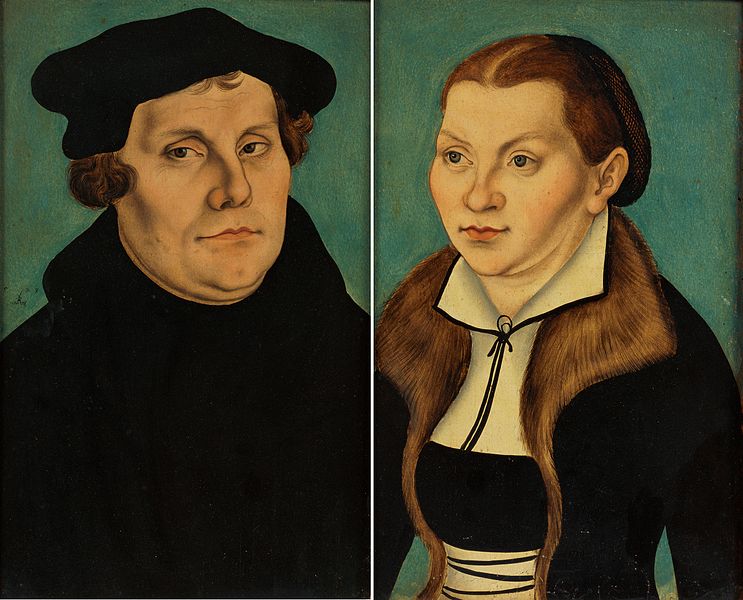When the monk wedded a nun: The radical marriage of Martin Luther

On this day in 1525, the fiery reformer Martin Luther married a woman named Katharina von Bora. The union was radical for its day – Luther was breaking the rules on priestly celibacy – but endured as an inspiration to many who followed.
Katharina was a nun, one of nine who had fled from their convent after being roused by some of Luther's teachings, and went to Wittenberg. There Katharina met Luther.
Luther was keen to break open the Catholic restrictions on marriage – he saw in it in more positive terms and from his reading of Scripture, did not believe there should be a compulsory vow of celibacy for priests. He wasn't necessarily keen to marry himself, but not long after meeting Katharina he would do just that.
The monk, age 41, married the nun, age 26. 'I feel neither passionate love nor burning for my spouse', Luther said on his wedding day. 'But,' he added, 'I will cherish her'.
This decidedly unromantic union would in time blossom into something more tender. Both were bold characters, unafraid to speak their mind. Luther was a poor house-runner, so Katharina took over managing the household. The couple raised six children, and Katharina's management through farming, boarding and running a brewery helped the family earn a living. For her early-rising industry, Luther nicknamed her the 'morning star of Wittenberg'.
'Suddenly, and while I was occupied with far different thoughts, the Lord has plunged me into marriage,' Luther wrote. His union was criticised by his contemporaries, who warned it would ruin the project of the Reformation. Luther doesn't seem to have regretted his choice though. His approach to marriage is arguably one of the enduring legacies of the Protestant Reformation, and continues to inspire Protestant family life today.
A more affectionate Luther later said: 'I wouldn't trade my Katie for France or Venice.'
The pair embodied a relationship that was not free from conflict or pain, but nonetheless grew into something rich and mature. Luther wrote: 'It is the highest grace of God when love continues to flourish in married life.'











